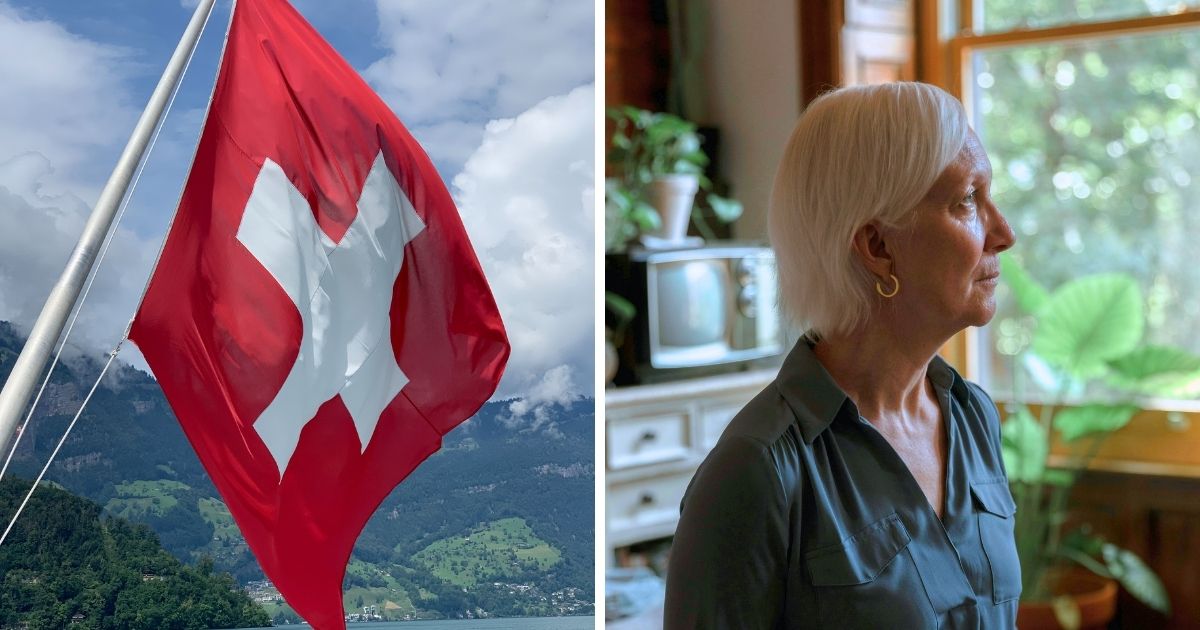A family was left devastated after a British mother, Anne, ended her life at a Swiss assisted suicide clinic without informing them, highlighting concerns that assisted suicides in England and Wales could also happen in secret if Kim Leadbeater’s assisted suicide Bill becomes law.
Anne, whose surname has been withheld, told her family she was going on holiday to Switzerland from Wales, but actually went to Swiss assisted suicide clinic, Pegasos, near Basel, to end her life.
According to Anne’s family, she did not have a terminal illness, with her sister Delia referring to her as “one of the healthiest people we know”. Reports indicate Anne ended her life after suffering from depression following the death of her son.
Anne’s brother and sister, John and Delia, were left devastated when they first heard of Anne’s death through “goodbye” letters that Anne had written before her death, in which she wrote “I am no longer here”.
Having heard nothing further, Delia contacted assisted suicide clinics in Switzerland. After contacting Pegasos, Delia received an auto-reply, then, after further appeals, Delia eventually heard from Pegasos, who said “Anne has chosen to die”.
“All official papers and her urn will be sent to her brother John”.
The law around assisted suicide in Switzerland, established in 1941, is broad. The Swiss Criminal Code only outlaws assisted suicide in Article 115 for “selfish motives”; it is permitted in all other circumstances.
Anne’s brother John expressed his frustration at the lack of communication from Pegasos regarding Anne’s death, calling their actions “evil”. He said “Why do they possibly think they have the right to do these things without contacting her family? It just seems evil to me… not to give us a chance to speak to her”.
Delia added “It’s absolutely devastated the family. It has destroyed us”.
Important questions about assisted suicides taking place in secret
Anne’s case raises important questions about how families in the UK would respond to a loved one’s assisted suicide taking place in secret. With no requirement in the Terminally Ill Adults (End of Life) Bill to inform or involve family, there is nothing in the Bill to prevent assisted suicides taking place in secret in England should it become law.
Nikki da Costa, former Director of Legislative Affairs at 10 Downing Street, expressed these sentiments in a post commenting on Anne’s case on X, saying “This is just like Kim [Leadbeater]’s Bill. NO mechanism for family to be told nor raise concerns either before the person’s life is ended or afterwards. Imagine being the parent of a terminally ill 18 year old and finding out afterwards your child chose this to relieve the burden on you?”.
“To enable doctors to issue lethal drugs that kill people without their family knowing is an absolutely tragic thing”
During the Bill’s Committee Stage discussions, the issue of assisted suicides taking place in secret was addressed when Danny Kruger MP tabled an amendment (418a) that would have required that the person seeking an assisted suicide sign a declaration saying they have or have not informed their family of their decision. It was not selected.
Speaking on this matter during the debate, Kruger said “That is the saddest thing, which was hinted at quite strongly—in fact, stated explicitly—in some of the evidence sessions. It has been suggested that wanting a loved one to live is seen by doctors as a form of coercion that should be resisted; that trying to argue a loved one out of an assisted death is the coercion that we need to guard against and, on that basis, we should not be making any expectation that families are informed. What a tragic thing for us to say. To enable doctors to issue lethal drugs that kill people without their family knowing is an absolutely tragic thing. I beg the Committee to consider what on earth we are doing allowing that”.
MPs, including Conservative MP Rebecca Paul and Danny Kruger, argued that there should be a legal route for family members to provide evidence and be heard by the assisted suicide panels.
Paul said “My point is that the family should be listened to and should have a route to legally provide information to the panel. Right now, they have no right to do that”.
Kruger said “If we see cases where somebody dies by assisted suicide, and the first thing their child or parent knows about it is they are told to come and collect the body, that will be a scandal. That has happened in other countries”.
Kim Leadbeater suggested that families who had concerns about the process of deciding that a loved one was eligible for assisted suicide could take out an injunction to challenge the decision if they thought it necessary.
Pro-assisted suicide MP Kit Malthouse argued against any formal involvement of the family of a loved one dying by assisted suicide since the person wishing to end their life may be obstructed in doing so.
The lack of family involvement or input in the assisted suicide Bill was a subject of intense controversy even before the Bill was debated.
In November, former head of the High Court’s family division, Sir James Munby accused Leadbeater of promoting a “profoundly unsatisfactory scheme” open to abuse, made worse by the fact that the Bill does not allow appeals in cases where assisted suicide has been approved, which he said was an “extraordinary” omission. This, he said, could leave a patient’s loved ones unable to challenge a decision for assisted suicide once made.
A “shocking and unacceptable” Bill
Anne’s experience of depression also highlights concerns around people suffering from depression being able to access assisted suicide under the Leadbeater Bill. Danny Kruger pointed out that, if you meet the six-month requirement and are regarded as having capacity, “the fact is that under this Bill you can be depressed and suicidal and still regarded as having capacity to have an assisted death”.
Sharing Kruger’s fears, Sarah Olney MP raised the concern that, under the Bill, someone thought to be within six months of the end of their life would be able to receive assistance in suicide “because they are suffering from depression”.
Under questioning from Danny Kruger, pro-assisted suicide MP Dr Neil Shastri-Hurst suggested that if the terms of the Bill are met, depression ought not always to be a barrier to state assistance in suicide. Echoing Shastri-Hurst’s sentiments, pro-Bill MP Lewis Atkinson argued on a separate occasion that “We should not prevent anyone from accessing an option merely because of a mild element of, for example, depression”.
Spokesperson for Right To Life UK, Catherine Robinson, said “This sad story should be a wake-up call for MPs currently considering the Leadbeater Bill. This is a terrible Bill and it is made worse by there being nothing in it to prevent assisted suicides taking place in secret and families being left in the dark”.
“The chilling fact is that under the assisted suicide Bill, there is no requirement to notify families about their loved one’s assisted suicide, which may only be discovered after their death. This is unacceptable, and a further reason why MPs must vote down this Bill at Third Reading, and prevent tens of thousands of lives from being put at risk in the years to come”.












